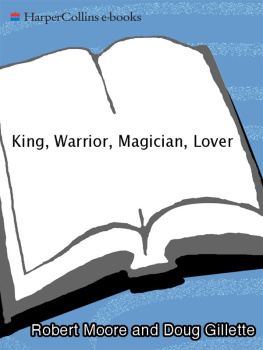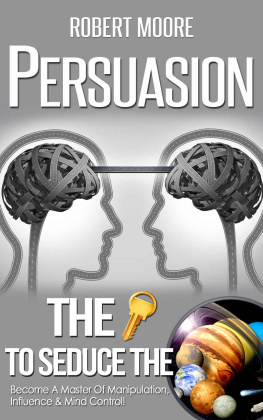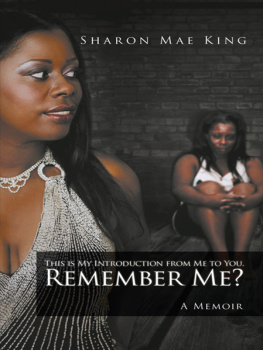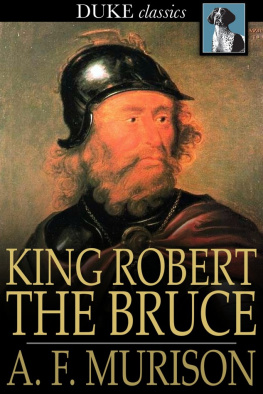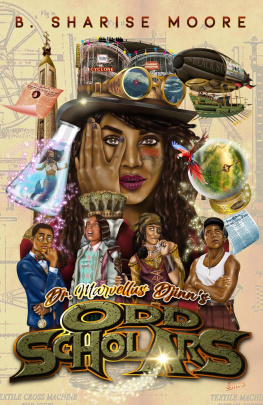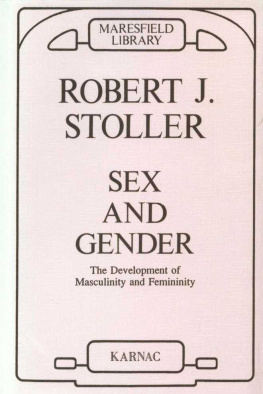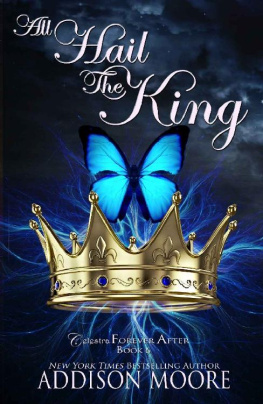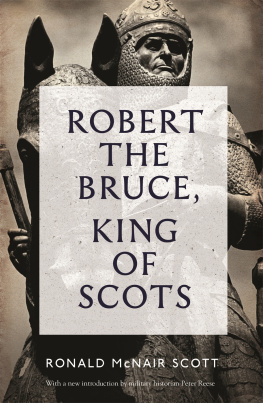Robert Moore - King, Warrior, Magician, Lover
Here you can read online Robert Moore - King, Warrior, Magician, Lover full text of the book (entire story) in english for free. Download pdf and epub, get meaning, cover and reviews about this ebook. publisher: HarperCollins, genre: Children. Description of the work, (preface) as well as reviews are available. Best literature library LitArk.com created for fans of good reading and offers a wide selection of genres:
Romance novel
Science fiction
Adventure
Detective
Science
History
Home and family
Prose
Art
Politics
Computer
Non-fiction
Religion
Business
Children
Humor
Choose a favorite category and find really read worthwhile books. Enjoy immersion in the world of imagination, feel the emotions of the characters or learn something new for yourself, make an fascinating discovery.
- Book:King, Warrior, Magician, Lover
- Author:
- Publisher:HarperCollins
- Genre:
- Rating:5 / 5
- Favourites:Add to favourites
- Your mark:
- 100
- 1
- 2
- 3
- 4
- 5
King, Warrior, Magician, Lover: summary, description and annotation
We offer to read an annotation, description, summary or preface (depends on what the author of the book "King, Warrior, Magician, Lover" wrote himself). If you haven't found the necessary information about the book — write in the comments, we will try to find it.
The bestselling, widely heralded, jungian introduction to the psychological foundation of a mature, authentic, and revitalized masculinity.
King, Warrior, Magician, Lover — read online for free the complete book (whole text) full work
Below is the text of the book, divided by pages. System saving the place of the last page read, allows you to conveniently read the book "King, Warrior, Magician, Lover" online for free, without having to search again every time where you left off. Put a bookmark, and you can go to the page where you finished reading at any time.
Font size:
Interval:
Bookmark:

From Boy Psychology to Man Psychology
The Crisis in Masculine Ritual Process
Masculine Potentials
Boy Psychology
Man Psychology
Decoding the Male PsycheThe Four Archetypes of the Mature Masculine
The King
The Warrior
The Magician
The Lover
The book King, Warrior, Magician, Lover by Robert Moore and Douglas Gillette, is available on tape from Harper Audio, a division of HarperCollins Publishers.
KING, WARRIOR, MAGICIAN, LOVER : Rediscovering the Archetypes of the Mature Masculine . Copyright 1990 by Robert Moore and Douglas Gillette. All rights reserved under International and Pan-American Copyright Conventions. By payment of the required fees, you have been granted the non-exclusive, non-transferable right to access and read the text of this ebook on-screen. No part of this text may be reproduced, transmitted, down-loaded, decompiled, reverse engineered, or stored in or introduced into any information storage and retrieval system, in any form or by any means, whether electronic or mechanical, now known or hereinafter invented, without the express written permission of HarperCollins ebooks.
FIRST H ARPER C OLLINS PAPERBACK EDITION PUBLISHED IN 1991.
Library of Congress Cataloging-in-Publication Data
Moore, Robert L.
King, warrior, magician, lover : rediscovering the archetypes of the mature masculine / Robert Moore and Douglas Gillette.1st ed.
Includes bibliographical references.
ISBN 0-06-250606-4
1. MenPsychology. 2. Masculinity (Psychology). I. Gillette, Douglas. II. Title.
HQ1090.M66 1990
155.632dc20
89-45991
EPub Edition SEPTEMBER 2013 ISBN: 9780062322982
06 07 08 RRD H 30 29 28
To the poet Robert Bly, who has provided the impetus for a revaluing of the masculine experience.
Four Mighty Ones are in every Man; a Perfect Unity Cannot Exist but from the Universal Brotherhood of Eden, The Universal Man, to Whom be Glory Evermore. Amen.
William Blake, The Four Zoas
The archetypes of King, Warrior, Magician, and Lover have been increasingly in focus in mens gatherings and publications in the United States and abroad. Indeed, many people assume that these patterns have traditionally been understood to be the building blocks of the mature masculine. In fact, the psychological research that led to the naming of these archetypes as the four fundamental configurations which, in dynamic relationship, constitute the deep structures of the mature male psyche was first presented in a series of lectures at the C. G. Jung Institute of Chicago and first published in a series of best-selling audiotapes now widely influential in the mens movement. It is our belief that the psychological findings outlined in these lectures constitute a major and potentially revolutionary breakthrough in decoding the fundamental deep structures of the human self, both masculine and feminine. This decoding of what Carl Jung called the double quaternio builds on Jungs understanding of the archetypal Self, but extends our grasp of inner geography beyond Jungs work by clearly delineating not only the psychological contents and potentials imaged in the four quarters, but also the two fundamental dialectical oppositions built into the dynamics of the deep self: King (or Queen)/Magician and Lover/Warrior.
King, Warrior, Magician, Lover is an exploratory survey of the implications of this research for understanding the masculine psyche. It is the first of a forthcoming five-volume series on masculine psychology based on this paradigm. Subsequent volumes are planned that will elaborate the wider implications of this theoretical model for human psychology and spirituality. Those with technical professional interests or who find their curiosity stimulated and want to know more should consult the list of resources provided at the back of the book.
Our purpose in writing this book, however, has been to offer men a simplified and readable outline of an operators manual for the male psyche. Reading this book should help you understand your strengths and weaknesses as a man and provide you with a map to the territories of masculine selfhood which you still need to explore.
The authors wish to thank Robert Bly for his encouragement, Graciela Infante for her careful reading of the manuscript, Margaret Shanahan and Graciela Infante for their many helpful suggestions, Patrick Nugent for his absolutely accurate transcription of Robert Moores lecture tapes, and the editorial and production staff of HarperSanFrancisco. In addition, we wish to offer special appreciation to the many men who have reflected on their personal experience in terms of this new approach to masculine psychology and have helped us to refine and deepen our understanding.
During Bill Moyerss recent interview with the poet Robert Bly, A Gathering of Men, a young man asked the question, Where are the initiated men of power today? We have written this book in order to answer this question, which is on the minds of both men and women. In the late twentieth century, we face a crisis in masculine identity of vast proportions. Increasingly, observers of the contemporary scenesociologists, anthropologists, and depth psychologistsare discovering the devastating dimensions of this phenomenon, which affects each of us personally as much as it affects our society as a whole. Why is there so much gender confusion today, at least in the United States and Western Europe? It seems increasingly difficult to point to anything like either a masculine or a feminine essence.
We can look at family systems and see the breakdown of the traditional family. More and more families display the sorry fact of the disappearing father, which disappearance, through either emotional or physical abandonment, or both, wreaks psychological devastation on the children of both sexes. The weak or absent father cripples both his daughters and his sons ability to achieve their own gender identity and to relate in an intimate and positive way with members both of their own sex and the opposite sex.
But it is our belief and experience that we cant just point in any simple way to the disintegration of modern family systems, important as this is, to explain the crisis in masculinity. We have to look at two other factors that underlie this very disintegration.
First, we need to take very seriously the disappearance of ritual processes for initiating boys into manhood. In traditional societies there are standard definitions of what makes up what we call Boy psychology and Man psychology. This can be seen clearly in the tribal societies that have come under the careful scrutiny of such noted anthropologists as Arnold van Gennep and Victor Turner. There are carefully constructed rituals for helping the boys of the tribe make the transition to manhood. Over the centuries of civilization in the West, almost all these ritual processes have been abandoned or have been diverted into narrower and less energized channelsinto phenomena we can call pseudo-initiations .
We can point to the historical background for the decline of ritual initiation. The Protestant Reformation and the Enlightenment were strong movements that shared the theme of the discrediting of ritual process. And once ritual as a sacred and transforming process has been discredited, what we are left with is what Victor Turner has called mere ceremonial, which does not have the power necessary to achieve genuine transformation of consciousness. By disconnecting from ritual we have done away with the processes by which both men and women achieved their gender identity in a deep, mature, and life-enhancing way.
Font size:
Interval:
Bookmark:
Similar books «King, Warrior, Magician, Lover»
Look at similar books to King, Warrior, Magician, Lover. We have selected literature similar in name and meaning in the hope of providing readers with more options to find new, interesting, not yet read works.
Discussion, reviews of the book King, Warrior, Magician, Lover and just readers' own opinions. Leave your comments, write what you think about the work, its meaning or the main characters. Specify what exactly you liked and what you didn't like, and why you think so.

